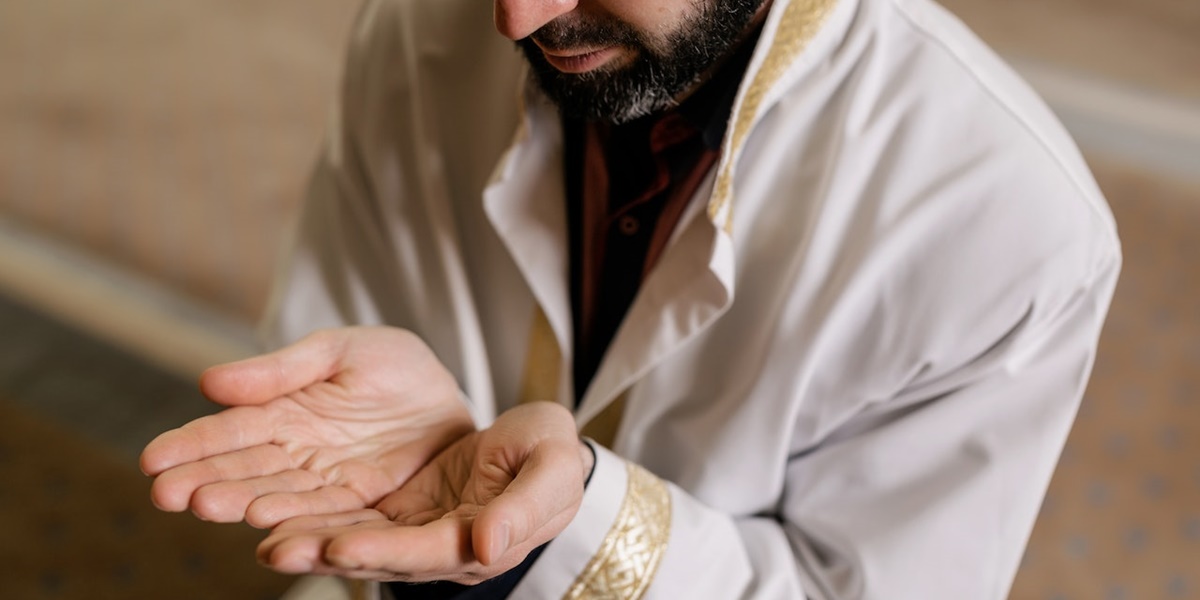Zakat fitrah is an obligation for every capable Muslim, which must be fulfilled before the Eid al-Fitr celebration. This obligation aims to purify the soul after observing fasting and to assist those in need so they can celebrate Eid appropriately.
However, there are many who neglect or even deliberately do not pay zakat fitrah. This certainly has consequences, both religiously, socially, and spiritually. In Islam, not paying zakat fitrah can affect the perfection of a person's fasting.
The Prophet Muhammad (SAW) explained that zakat fitrah serves as a purification for those who fast from mistakes or shortcomings in their worship. If someone deliberately ignores this obligation, then the fast they have performed may lose its purifying value.
Here is the complete information summarized on Friday (4/4/2025).
1. Consequences of Not Paying Zakat Fitrah

Illustration of praying (credit: pexels.com)
Religiously, neglecting the obligation of zakat fitrah is considered a sin. The level of sin depends on the intention and ability. Forgetting and paying immediately after realizing it is generally forgiven, but it is still recommended to pay promptly and seek forgiveness from Allah SWT. However, deliberately not paying when one is able to do so incurs a greater sin.
Some sources mention the threat of punishment for those who intentionally withhold zakat, referring to verses in the Qur'an about the torment for those who hoard wealth. This threat emphasizes the importance of zakat as an act of worship and social concern. However, interpretations of the verses vary and require a deeper understanding of religious knowledge.
In essence, not paying zakat fitrah results in sin, and the severity depends on intention and circumstances. Paying immediately after realizing the forgetfulness is highly recommended, especially if accompanied by repentance and seeking forgiveness.
2. The Law of Qadha Zakat Fitrah: Mandatory or Not?
Questions regarding the qadha of zakat fitrah often arise. According to Pustaka Ilmu Sunni Salafiyah - KTB (www.piss-ktb.com), the law of qadha zakat fitrah is mandatory. Delaying payment after Idul Fitri without a valid excuse is considered haram.
Therefore, it is mandatory to make up for it immediately if there is a delay. The Maliki, Shafi'i, and Hanbali schools agree: delaying until after Idul Fitri without a valid reason is considered sinful and requires qadha.
The Hanafi school differs, stating that delaying zakat fitrah is only makruh and allows it until the end of life. Thus, it is important to understand this difference of opinion and to follow the school one adheres to.
3. Views of Various Schools on Zakat Fitrah
The differences of opinion among the schools reflect the richness of understanding in Islam. Understanding these differences is important to appreciate the diversity of interpretations of religious teachings.
Although there are differing opinions regarding the law of delaying the payment of zakat fitrah, the conclusion emphasizes the importance of fulfilling this obligation. Every Muslim is encouraged to understand and follow the school they adhere to.
By understanding the various views of the schools, we can be wiser in performing worship and making decisions that align with our beliefs.
4. How to Make Up for Delayed Zakat Fitrah Payments
If you are late in paying zakat fitrah, pay it immediately as a form of responsibility. A sincere intention and prompt payment are important steps.
Channel your zakat fitrah through a trusted zakat management institution to ensure it reaches the right targets and benefits those in need. Make sure the institution has a good reputation and is transparent.
Do not hesitate to seek guidance from scholars or religious figures you trust to ensure that your actions are in accordance with religious teachings.
5. Wisdom and Benefits of Paying Zakat Fitrah
Zakat fitrah is not just an obligation, but also an act of worship that has many wisdoms. It cleanses our souls and wealth from undesirable things.
Moreover, zakat fitrah helps alleviate the burden of the underprivileged and the poor. This is a form of social concern taught in Islam.
By fulfilling zakat fitrah, we contribute to creating social justice and community welfare.
6. Myths and Facts About Zakat Fitrah
Many myths circulate regarding zakat fitrah. One common misconception is that zakat fitrah can only be paid in the form of rice.
In fact, zakat fitrah can be paid in the form of other staple foods that are in accordance with local customs. This shows flexibility in carrying out worship.
It is important to seek valid and reliable information to avoid being trapped in misunderstandings or incorrect myths.
7. Overcoming Difficulties in Paying Zakat Fitrah
If you are experiencing economic difficulties, consult with scholars or zakat management institutions to find the best solution. Do not hesitate to ask for help.
There are various assistance and relief programs that may help you fulfill your zakat fitrah obligations.
Remember, sincere intention and effort are more important than financial capability alone.
8. Conclusion
Paying zakat fitrah on time is an encouraged obligation. However, if it is delayed, pay it immediately and seek forgiveness from Allah SWT. Understand the qadha law according to the adopted school of thought and distribute zakat through a trusted institution.
(kpl/ses)
Disclaimer: This translation from Bahasa Indonesia to English has been generated by Artificial Intelligence.













